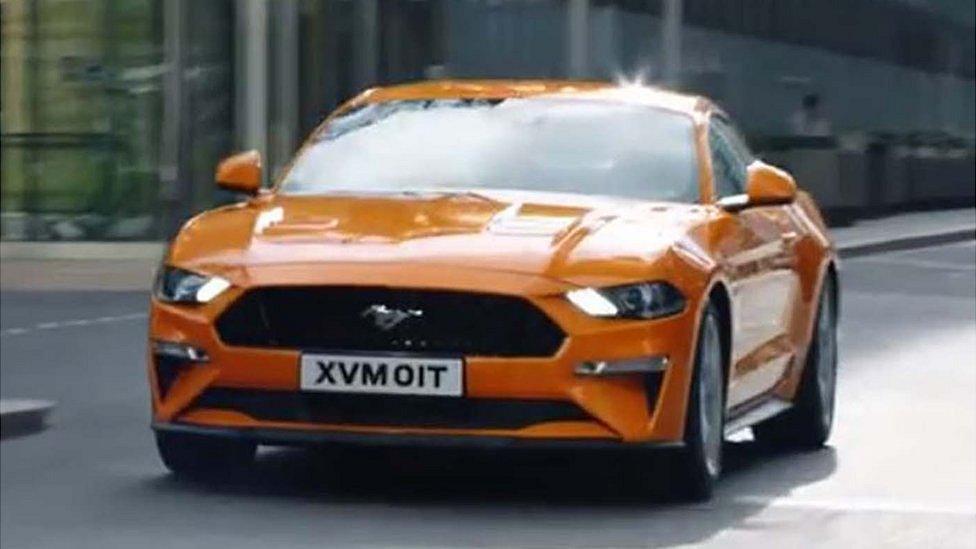Ford, Fiat and Nissan ads banned for dangerous driving
- Published

Ford said its ad used the word "rage" but did not show road rage
Three different carmakers have had ads banned for encouraging unsafe driving.
Two ads for Ford Mustang cars fell foul of the Advertising Standards Authority (ASA) after viewers complained that they showed driving as a way of releasing anger.
The ASA also ruled against a Nissan Micra ad which it said depicted driving at excessive speeds.
It also banned an ad showing four Fiat models because, it said, "speed was the main message of the ad".
Ford said it had intended to show the Mustang as "the antidote to a dull life", while Nissan said its ad did not condone speeding and Fiat said its ad did not represent real-life driving conditions.
The Ford ad, shown in cinemas and on the firm's YouTube channel, quoted a Dylan Thomas poem urging viewers to "rage against the dying of the light", while showing typical office frustrations such as a jammed photocopier and spilt coffee.
Ford told the ASA that the word "rage" was not used to convey anger or aggression, but passion and enthusiasm. The ads did not show any scenes of road rage, it added.
However, the ASA said the ad depicted characters releasing their anger while driving a Mustang and that the poem reinforced that "by encouraging motorists to drive in an aggressive manner".
'Fantastical' scenes
The Nissan ad, shown on TV, showed a car braking after a pedestrian stepped in front of it. Nissan said the purpose was to demonstrate the car's "intelligent technology and safety features".
It added that the driver shown was "at all times driving within the applicable speed limits".
However, the ASA said there was no indication in the ad of what those limits were. It said the ad "implied the character had increased the speed of the vehicle because they were in a rush".
Fiat's ad, seen on YouTube, featured cars driving on a track which the carmaker said was "designed to emulate the Hot Wheels children's toy cars game".
It said the ad was not targeted at UK consumers and was "fantastical in nature".
The ASA said the ad had been served to UK consumers and the association with Hot Wheels "would not be immediately obvious to or understood by many consumers".
The watchdog added that the ad "portrayed the cars racing and being driven in a manner that condoned or encouraged unsafe or irresponsible driving".
- Published9 May 2018
